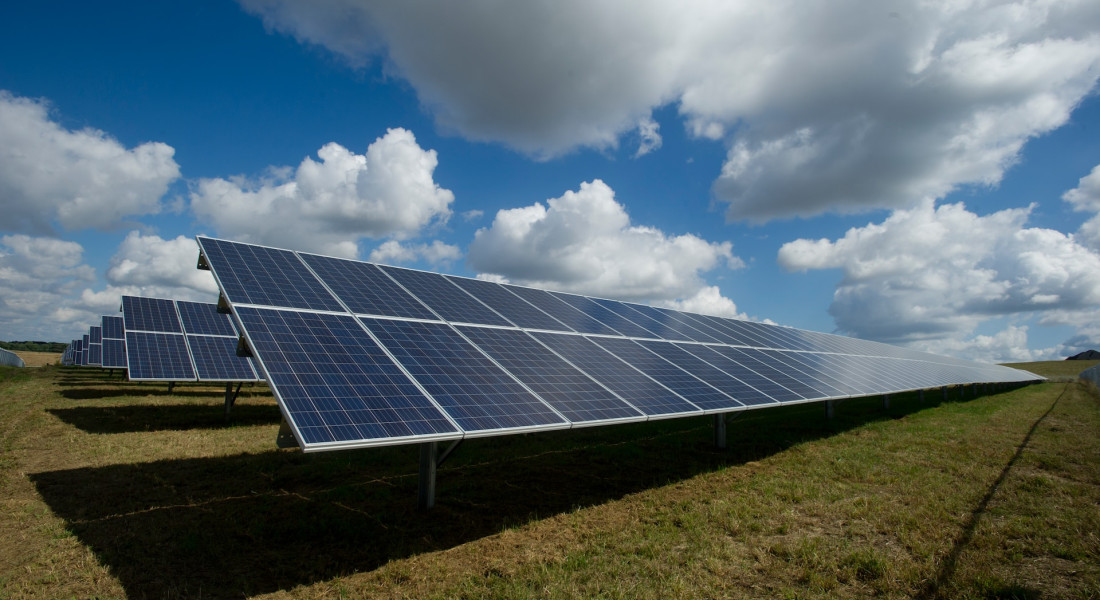
Energy storage has the potential to revolutionise renewable energy production, allowing us to store excess energy from renewable sources such as solar panels, wind turbines and hydroelectric power plants.
Using the very latest in battery technology, homes and businesses can store excess energy produced from renewable sources for later use.This stored energy can be used when demand is high or when renewable sources are not producing enough electricity. This helps to ensure that we always have access to reliable and affordable electricity, allowing for a more stable power grid. This stored energy can also be used to provide backup power when needed, or even to feed into the grid when demand is high. With energy storage, we can make the most of our renewable energy sources which is critical to reduce our dependence on fossil fuels on our journey to Net Zero.
For businesses, investing in your energy security with an energy storage system can help reduce costs, increase efficiency, improve reliability, and ensure that excess renewable energy is not wasted. When demand is not sufficient to utilise renewable energy supply, generators are paid to curtail their supply. The UK wind curtailment App shows the cost of this wasted renewable energy. Battery based energy storage systems can help capture this free, sustainable energy for use at later times in the day and replace fossil fuel generated electricity.
Energy storage offers an opportunity to secure a more stable energy supply with grid resiliency. The stored energy can ensure continuity of operations in the event of a disruption to the grid supply. By storing excess energy instead of feeding it back in the grid, businesses can draw upon it when they need it most. Battery storage also helps to secure power for remote locations that don’t have a mains grid supply.
Fluctuating energy prices can be extremely damaging to business. Energy storage systems can increase your resilience to such price shocks by reducing how much energy you need to purchase via traditional supply methods. Storing low cost renewable energy and using it later, during peak more expensive periods, can significantly reduce your overall electricity costs. Energy storage also provides the opportunity to generate an additional revenue stream by exporting energy to the grid at times of high demand or stress via Demand Side Response (DSR) schemes, Dynamic Frequency Response and other ancillary services to National Grid.
Achieving 100% clean and renewable power is a major goal for many countries around the world. Energy storage is a key part of this effort, allowing for the capture of zero emissions power generation and clean electricity generation. National Grids Future Energy Scenarios report states that energy storage is critical for the UK to reach Net Zero as a part of our international legal obligations.
Energy storage helps to ensure that clean energy is available even during times when the sun isn't shining or wind isn't blowing. It also allows for more efficient use of existing renewable resources, reducing the need to build new power plants and creating a more sustainable future.
Many businesses are now transitioning their fleets to electric vehicles to support the transition to net zero. This means an increased demand for rapid charging points which in turn can potentially cause the local grid to become severely strained . Battery storage bypasses the grid and makes it more practical to make the switch to electric vehicles.
Battery technology has made a significant impact on renewable energy solutions, making them more accessible and affordable. Lithium-ion batteries have been instrumental in the scalability of solar power, allowing homes and businesses to store energy for later use. The world's largest Li-ion battery manufacturer CATL has recently announced the mass production of their latest offering for EVs, the ‘Qilin’ battery which can hold three times more energy than previous generations. Li-ion battery systems are continually improving in both cost and efficiency. They are both cost-effective and efficient. Additionally, flow batteries are being used to store larger amounts of energy for longer durations for larger projects like wind farms. These advances in battery technology have made renewable energy generation more efficient and cost-effective than ever before. These batteries can also help with grid stabilisation and peak demand management.
As the world continues to move towards a greener future, innovations in battery technology will continue to play an important role in making renewable energy solutions more accessible and affordable.
Dale offers a range of energy storage solutions that can help your business please contact us to learn more or to discuss your scheme.